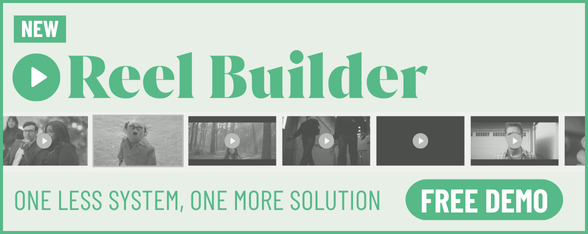
Lucky Generals’ Creative and Strategy Stand Against a “Crisis of Confidence”

When Shelley Smoler and Damien Le Castrec joined Lucky Generals last year as chief creative officer and chief strategy officer respectively, they did so under a big objective: to fuel the agency’s next chapter of growth. A lot of momentum is already present – the agency won 12 out of 12 pitches last year and earlier this April it was appointed British supermarket Asda’s creative agency partners. “It’s nice to come to a place where nothing is broken. All you have to do is take something that’s really great and make it, hopefully, even better. That’s a really nice challenge,” says Shelley.
“It’s weird to walk into an agency where nothing needs fixing,” echoes Damien. “It’s amazing to have the space to focus on the work – we don’t have to go home and worry about politics and mergers. A lot of agencies are going through existential crises at the moment while Lucky Generals has a very clear sense of self: who we are and what we do.”
The agency’s defined identity and celebrated reputation is a solid foundation for Shelley and Damien to focus on creating the kind of brilliant work that they’re obsessed with. Work that “stands apart from what everyone else is doing out there; not the second best kind of work, but the next kind,” says Shelley. “We always say to creatives ‘don’t bring us references to stuff that exists’. We want people to bring our work as references for what's coming next.”
While Lucky Generals has always succeeded at executing great ideas, Shelley does want to amplify that further by “making them bigger, so they’re living in more areas and more platforms than they do currently by adding scale.” And Damien wants to “double down on big platform ideas to make them as big as they can be in the real world.”
The other ambition is making Lucky Generals a really, really lovely place to work at. “There’s a bit of a split in the industry,” says Damien, adding “you've got places that make brilliant work but are absolutely unbearable to work for, and you've got very pleasant places to work for that are not necessarily making brilliant work. We want to create a culture that people want to be part of, a culture that is not top down, a culture where the person at the top doesn’t dictate every single thing everyone should be writing on their slide or on their scripts, and a culture where creativity is encouraged and enabled in all of us.”
Discussing the tension between creative risk taking and commerciality, Shelley is quick to note that they’re not opposites. If anything, she’s hardly worried about making creative leaps and is instead concerned with the work and brands that don’t. “Work that isn’t bold, brave, and takes risks doesn’t get noticed and it costs the client more,” she states. “We know it as ‘the boring tax’; if the work isn’t seen then it doesn’t pay off commercially or creatively for anyone.” Damien has also seen how chasing past successes and basing work on ‘proven’ formulas leads people on a wrong path. Ultimately, that approach “doesn’t create anything original,” he says. And while there are key commercial sector ingredients the agency is never going to compromise on, “in terms of creativity, we want to pursue things that feel riskier, because they're new, fresh, and have never been done before,” Damien adds.
The AI question, unsurprisingly, doesn't phase Shelley and Damien – they’re firm in the idea that it has a place in the strategic and creative process but it’s never going to replace instinct and intuition. Nor will it produce anything original. It simply cannot. “AI will take everyone to the same place faster,” Damien says. “I embrace it,” he wryly adds. “I like to give it a brief and see the first response. It's quite often the most obvious thing to do, which is exactly the thing we shouldn't do.” A great use of a technology that amalgamates others’ ideas to produce more of the same.
“We like creating things that are fresh and innovative and don't exist in the world yet. So it's impossible for AI to come up with the same level of ideas that we do, but we can use it smartly to help us execute faster and better and bring the ideas to life in that way,” Shelley explains. While maintaining the energy of an indie creative shop, as part of Omnicom Group, the team has access to all of the group’s existing and forthcoming AI solutions and the experts to help apply them in the best way.
Damien and Shelley have noticed an industry shift that they think is a self-fulling prophecy: the insistence that audiences have short attention spans and therefore only respond to the shortest of shortform work. “The industry has adopted that [mindset] and plays with those new behaviours by making ideas smaller, quieter. I think that's a crisis of confidence. As an industry, we should have confidence in the power of an idea to engage people for longer than they probably thought they could be engaged,” says Damien.
For him, that’s the wrong way to approach the current moment. “We try to give brands the confidence that we can come up with things that are worthy of people's time,” he states. “On social, if it's the place where the ideas are easiest to ignore, it creates a challenge for us, it’s pressure to come up with the best ideas for that space.”
Shelley points to the success of Netflix’s ‘Adolescence’ series to support Damien’s point about attention. “With ‘Adolescence’, it's not like people didn't make the time to watch, even though it's long. I think we forget sometimes that if we come up with great ideas, that’s entertainment as well. That's what [the showrunners] set out to do, to entertain people and make it captivating and interesting enough for them to want to interact and engage with it,” she adds.
It’s then no surprise that Lucky Generals has adopted, under Damien and Shelley’s guidance, a strong view on the ‘always on’ culture that many brands apply on socials – theirs is ‘we will never do always on, we will do always good’ – a testament to the confidence they have in the work and people’s attention.
Where does the confidence come from? Damien’s approach to strategy has its own strategy and it involves getting out into the world, connecting with communities, and actually talking to people – doing focus groups, picking up the phone, inspired by documentarian approaches. Damien wants to remind the industry that strategy “is not about eye and emotion tracking or applying proven formulas.” He sees it as “being confident and curious to go learn the things we don't know, have an appetite to discover them, and to find the insights.”
Having worked together for over a decade, Shelley and Damien instinctively understand how strategy and creative feed each other. “One of the main reasons we joined Lucky’s is because the agency really does value the relationship and the collaboration between strategy and creative. That was really, really important to us. I always find that the closer we work together, the stronger it makes the work, and we try to instil that in the departments here as well,” Shelley says.
Shelley recalls how in some agencies the strategy is only for strategists before passing it to creatives, making it a creative-only problem. “But, actually, it works best when both the creatives and the strategists have really strong views and ideas, yet hold on to them lightly, because the beauty is they both have to be open to changing and adapting. You can have the best strategy in the world, but if it doesn't produce fertile, creative ideas, then it's not a good strategy, however brilliant it may sound on paper,” she adds.
The team tends to not avoid tension, sometimes it even courts it because “that only ever makes the work stronger, because it’s interrogated from every single angle. I think friction is brilliant when it's done with respect and the right intentions,” Damien reflects.
“We actually encourage friction, and we encourage the youngest voices in the room to have a very loud, strong presence as well. In strategy, we've hired people who've never done planning before,” Damien says. That’s an advantage to the team as it brings fresh, left-field thinking to the table, opening up possibilities. “At a briefing this morning, the way someone phrased a question unlocked the whole thing for us and it came from the youngest person who’s only been in the industry for two months.”
One ambition that Shelley wants to see fulfilled over the course of the year is for others to see Lucky Generals’ work “and go, ‘How the hell did they do that?’” she says. To her, that’s a sign of growth for the agency, its talent, and clients. And there’s a plan on how to accomplish it too. “On every brief, we want to show the client what they want and what they've asked for, but also show them something that they haven't. To surprise them,” she says.
By championing a collaborative, tension-embracing culture where strategy and creative intertwine, achieving their ambitions feels comfortably within reach. And with all the new business wins, they’ll have plenty of chances to show clients – and the industry – what original ideas can achieve.















